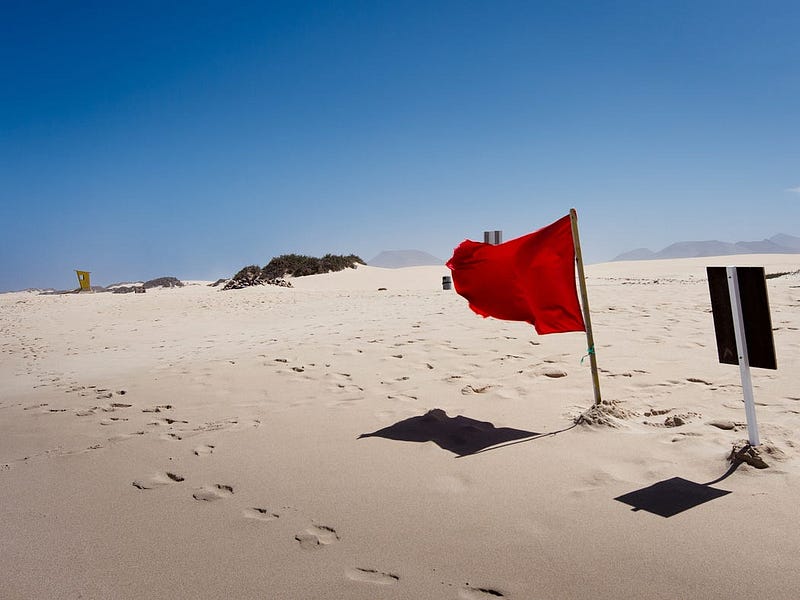Book Appointment Now
Is Understanding Red Flags Enough to Keep you Away from Toxic Relationships?
“Without healing, green flags will look like red flags and red flags will look like green flags.”

Photo by Paolo Bendandi on Unsplash
Today I’ll be answering the question of whether understanding red flags is enough to keep you away from toxic relationships. What I’ve noticed is that when someone is in an abusive relationship and then finally steps out of it, they may learn about red flags and think, “Oh, now I know what red flags to look out for. I know what manipulative behavior looks like, I know about the love bombing phase, and I know what to be cautious of.” Some may even create a checklist of red flags, believing that it will keep them safe. However, simply understanding red flags alone does not guarantee protection from toxic relationships.
The reason is that it’s not just about having knowledge of red flags; it’s about how you perceive the world and how your inner belief system has been shaped. Even if you have a checklist with 52 red flags, you still have to be the one to interpret those red flags and assess the person’s behavior. However, if deep inside, you feel unworthy of love, lack boundaries, or believe that you are undeserving of healthy relationships, you will still gravitate towards situations that reinforce those negative beliefs.
Negative beliefs are powerful drivers in our lives, often shaped by past experiences, trauma, conditioning, or learned behaviors. These beliefs can distort our perception, and even with a logical checklist of red flags, our minds can still rationalize or overlook concerning behavior.
The mind has a tendency to seek out what is familiar, even if it means reaffirming negative beliefs about oneself. This can be a puzzling aspect of human behavior, as one might assume that individuals would naturally gravitate towards what is positive and beneficial for their well-being. However, due to the influence of past experiences, conditioning, and subconscious beliefs, the mind often seeks out situations that align with familiar patterns, even if they are harmful or reinforce negative self-perceptions.
Common Sense is Not Enough
So, while red flags may seem like a matter of logic or common sense, if our inner belief system is distorted due to past experiences, we may still find ourselves drawn to unhealthy relationships. This is because our subconscious mind is driving us towards what it perceives as a safe place, even if it’s detrimental to our well-being. If you’ve been in toxic relationships for a long time, seeing red flags may not be enough, as they may appear as green flags or even be dismissed altogether.
Healing is The Answer
To truly protect yourself from toxic relationships, it is crucial to work on healing past wounds, addressing limiting beliefs, and developing a healthier sense of self. By doing so, you can change your perception and break free from the patterns that have kept you in unhealthy relationships. Seeking help from professionals can assist you in uncovering and working through these deeper issues beyond your current level of awareness.
Remember that green flags in a healthy relationship may seem boring to you if you’re used to drama and chaos. This is where self-awareness and healing come into play. By addressing your inner beliefs, you can learn to recognize and appreciate healthy, stable relationships rather than being drawn to the highs and lows of toxic dynamics.
In conclusion, understanding red flags is a valuable tool, but it’s not the sole solution to avoiding toxic relationships. To truly break free from the cycle, you must address and heal your inner beliefs and past traumas. By doing so, you can create a healthier foundation for yourself and attract healthier relationships.
Note from the Author
If you’re ready and you’d like my help with healing, finding peace in life and breaking free from these toxic patterns for good , then you can book a FREE BREAKTHROUGH CALL with me HERE. Happy healing 💙💙. Feel free to share and comment! Use this information with caution, it comes from my own thoughts & bias, experiences and research😊.






